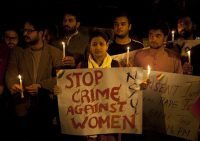The sad truth highlighted by Germany assaults
When the Arab Spring erupted in 2011, Western states optimistically assumed that protests against authoritarian regimes across Northern Africa would result in a democratic "fourth wave". But few could have expected the chain of events that would lead to over 2 million refugees crossing the Mediterranean in open boats, seeking safe haven from their own failed states -- or a series of New Year's flashpoints that intensified a national debate that even drew the attention of a U.S. presidential candidate.
On New Year's Eve, marauding groups of "north-African looking" men reportedly surrounded women in public spaces in the German cities of Cologne, Hamburg and Frankfurt, grabbing their purses, cell phones and intimate body parts.… Seguir leyendo »









